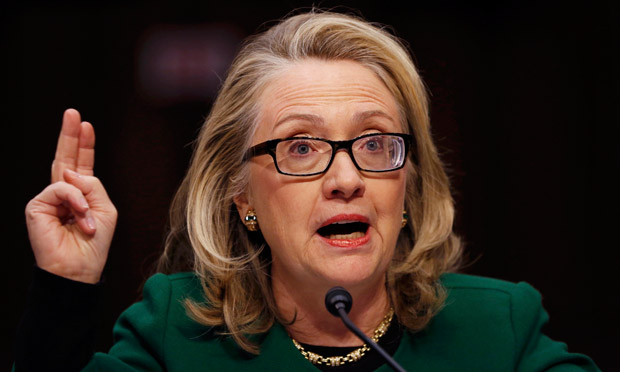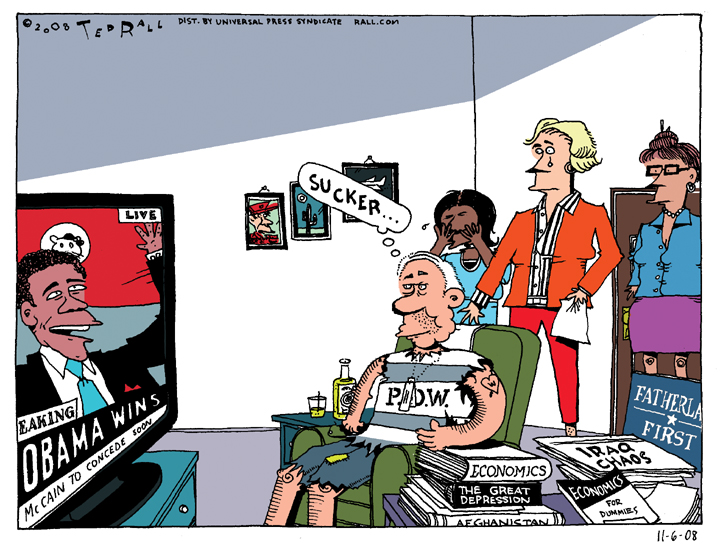
The Donald Sterling, Cliven Bundy and Phil Robertson Racism Trials
Donald Sterling, Cliven Bundy and Phil Robertson have more in common than dumb opinions about blacks. They’re examples of working classism at work.
The billionaire owner of the Los Angeles Clippers, the grazing fee refusenik Nevada rancher and the hillbilly patriarch in the TV reality show “Duck Dynasty” are bit players in a familiar drama.
After being embraced by the establishment — right-wing Republican politicians and media figures in the case of the last two, the NAACP for the former — their not-so-previously-secret racism exposes itself through their big mouths. After which said establishment proclaims shock and surprise, runs away screaming, and gets rid of their once-favorite racists faster than a chick-turned-chicken after Easter.
The racism trifecta is very 2014, but there’s nothing new about this overall dynamic.
The Reverend Jeremiah Wright was so close to the Obamas that he officiated their wedding. However, when Wright’s sermons criticizing American foreign policy came to light during the 2008 campaign, then-Senator Obama quit his church and publicly insulted him.
Unlike Sterling, Bundy and Robertson, Wright’s controversial comments came from the Left of the corporate “mainstream.” As a progressive, Wright identifies with African-Americans, the poor and working class.
Nevertheless, it was the same basic theme in action: an establishment figure defining himself as “mainstream” by ostracizing an erstwhile ally, one who is identified with or as a member of the working class.
Sterling and Robertson are both very wealthy; by most measures, Bundy is rich. Culturally, however, Bundy the rancher and Robertson the redneck automatically go into the outsider box along with their hick accents. Ditto for Sterling, née Tokowitz, a self-made man who hustled in the trenches as a crass L.A. divorce lawyer—and offended polite society by slutting around with hookers and age-inappropriate courtesans.
Only in America can you be worth a billion bucks yet still be classified as white trash.
Even if your accents are northeastern and your diplomas issued by the Ivies, political identification with the plight of the underclass makes you a target for the first-we’re-friends-next-not-so-much rug-pull.
Also in 2008 and also in reaction to attacks from the right, Obama shunned former leftie activist Bill Ayers — formerly a member of the revolutionary Weather Underground in the late 1960s — and disavowed their previous interactions in local Chicago politics. Obama’s campaign strategists believed it was important for a candidate who sought to become the country’s first black president to reassure the white power elite that he was one of them, or at least not enamored of the underclass whose wrath they reasonably feared, and so were quick to jump at the chance to exploit Ayers and Wright to achieve double “Sister Souljah moments.” (More on Souljah below.)
Obama’s Republican rival that year, John McCain, similarly embraced “Joe the Plumber” as an embodiment of salt-of-the-earth America, taking the Ohioan on the campaign trail with him. Inevitably, their public bromance soured, and McCain distanced himself after his working-class buddy turned out to be a bit of a liar concerning his tax status, a gun nut and, well, just too lumpen to establishment tastes. (Joe’s 2012 assertion that Germany’s Jews were doomed by gun control under the Third Reich is a classic example of widely-believed historical manure.)
It isn’t necessary for the establishment big-shot to personally know his working-class-identified victim in order to betray her. All that’s needed is to point out someone with dangerously antiestablishment ideas and smear her for personal gain.
Sister Souljah, the hip-hop artist and author after whom the term “Sister Souljah moment” was coined, got lambasted by Governor Bill Clinton during the 1992 primaries for musing: “If black people kill black people every day, why not have a week and kill white people?” Clinton, who played golf at a no-blacks-allowed country club, played the punk card, opting to beat up someone who couldn’t hit back: “If you took the words ‘white’ and ‘black,’ and you reversed them, you might think David Duke was giving that speech.” The media didn’t give Souljah a platform to reply.
Souljah’s career foundered for years as a result, but Clinton—personally suspect by major donors and the political class because he’d grown up poor, and continued to exhibit picayune tastes in such signifiers as fast food and big-haired Arkansan women—won the White House, where he used his power to push through NAFTA, the WTO and other free trade agreements that decimated workers.
In 2000, GOP primary contender John McCain shot for the ultimate Sister Souljah moment by saying: “Neither party should be defined by pandering to the outer reaches of American politics and the agents of intolerance, whether they be Louis Farrakhan or Al Sharpton on the left or Pat Robertson or Jerry Falwell on the right.”
Farrakhan and Sharpton were identified with black militancy; Robertson and Falwell were leaders of the Christian evangelist movement, which was predominantly poor and working class. In U.S. corporate politics, defending the downtrodden—whether progressive or reactionary—is defined as “extreme” and bizarre.
Even family isn’t exempt from working classism. As President, Jimmy Carter—former governor, agribusiness entrepreneur and Naval Academy graduate—distanced himself from his brother Billy, targeted by the press as a hard-drinking embarrassment.
Why do the 31% of Americans who self-identify as working class put up with working classism?
(Support independent journalism and political commentary. Subscribe to Ted Rall at Beacon.)
COPYRIGHT 2014 TED RALL, DISTRIBUTED BY CREATORS.COM



